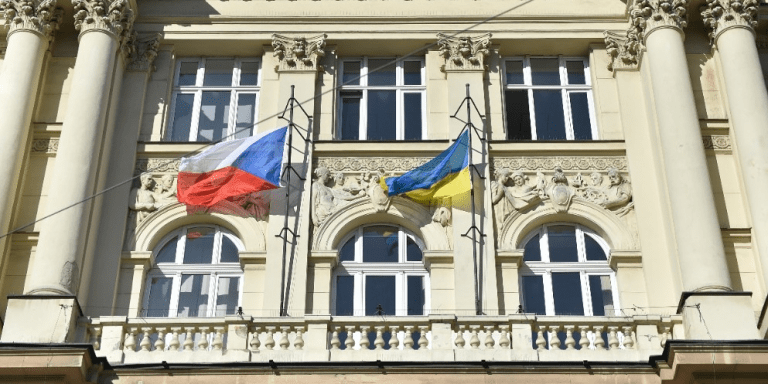More than half of Ukrainians continue to work in poor conditions, and 57% are living below the poverty line. Credit: JMK.
Prague, Dec 18 (CTK) – More and more Ukrainian refugees are finding jobs in the Czech Republic; 72% are now employed, according to the November survey from the Voice of Ukrainians, though the share of those working in lower-skilled jobs is not decreasing. The results were released to CTK by PAQ Research today.
According to the survey results, the share of refugees working full- or part-time has risen from 67% in June to 72% in November, with three-fifths of them still doing less skilled work than before they left Ukraine.
In addition, more than half of Ukrainians continued to work in poor conditions in November, and 57% were living below the poverty line, as in June.
According to the PAQ Research, refugees who want to stay in the Czech Republic and who speak Czech are more likely to have jobs in the country. Since December last year, the number of Ukrainian refugees over 17 in work has increased by 21%.
At the same time, half of Ukrainian refugees said that they work on weekends or late in the evening. Two-fifths say they earn less than Czechs in the same position, and 30% have to work multiple jobs to support themselves. 17% reported that they were not entitled to take a holiday.
Compared to June, the share of those who have to work multiple jobs to support themselves has increased by 7%, and of those without holiday entitlement by 4%. The number of workers with so-called precarious jobs, i.e. unstable in difficult conditions, increased by 3% to 58 percent.
The majority of Ukrainian newcomers still hold jobs below their qualifications.
“The share of refugees working well below their qualifications is even higher than in August 2022,” the survey authors said, currently 44%, up from 37% last August.
Six out of ten Ukrainian refugees remain in a poor financial situation, most often seniors and families with children. Among Czechs, the equivalent figure is one in ten, noted the survey authors. They write that 36% of Ukrainian households are currently receiving the humanitarian benefit, 20% less than in June, following the change in the benefit payment criteria and the increase in labour activity.
As a consequence of the amended “lex Ukraine”, the number of refugees living in rented accommodation has also increased. 70% of them now live in rental housing, which is 21 percentage points more than in the summer.
“The high increase in rented housing is mainly due to the movement of refugees from [domestic residents’] solidarity households. In July, the state stopped paying allowances to these households, which led to a large number of refugees starting to pay for this housing,” the survey authors said.
They said that 7% of refugees have accommodation completely free of charge, which is the lowest share yet recorded.
PAQ has been monitoring the situation of Ukrainians who came to the Czech Republic last year in a long-term survey. It is carried out in cooperation with the Institute of Sociology of the Czech Academy of Sciences and with the support of the United Nations Children’s Fund (UNICEF) and the Labor and Social Affairs Ministry. The November round of the research involved over 3,000 Ukrainian refugees in 1,200 households.







